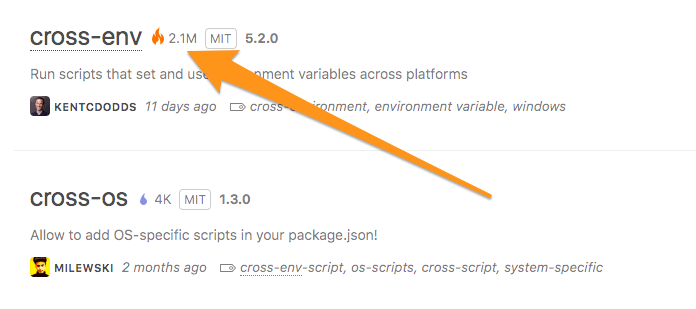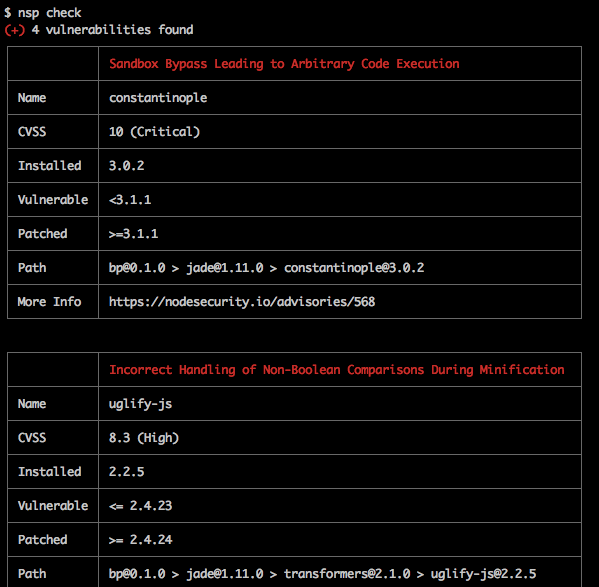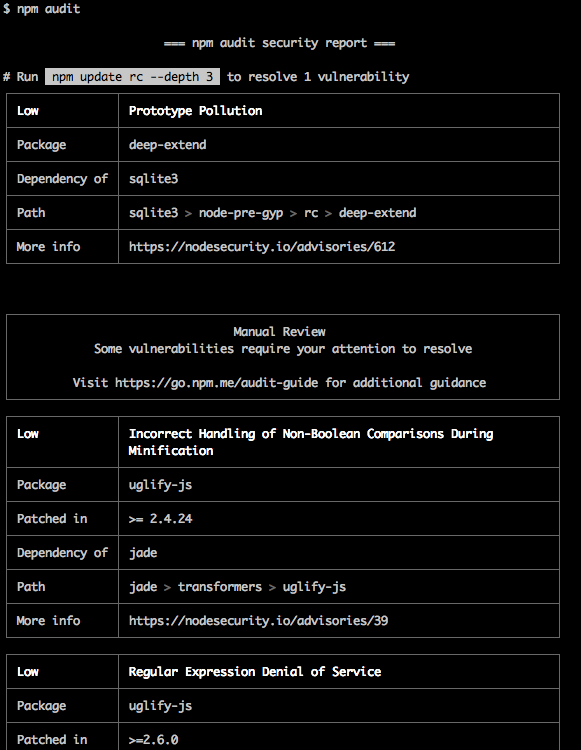Surviving Unfamiliar JavaScript Projects: dependencies
The chances to find a JavaScript project with all dependencies correct and up-to-date is almost zero. For some dependencies, just stepping out for coffee almost puts you at risk of falling behind.
It’s not a question of “falling behind”, that’s a given. It’s a question of figuring out what packages are outdated and by how much.
npm outdated
A good first step is built-in npm: when you run npm outdated, you get an output similar to this:
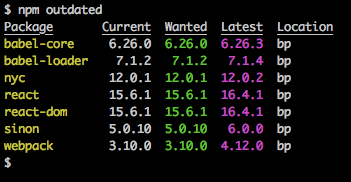
“Package” is obvious, but let’s clarify the others:
- Current: what’s currently installed locally in
node_modules - Wanted: the maximum version compatible with the semver in your
package.json - Latest: the most up-to-date, the latest, version in npm
You need to be responsible with when and how you upgrade. I enjoy the lets-see-what-breaks approach to upgrading… it’s often faster and more definitive than researching CHANGELOGs and READMEs for clues.
If you want to jump to the latest version of everything, let’s talk about ncu.
ncu
ncu, from the npm-check-updates package, also tries to evaluate your
package.json against the package versions out there:
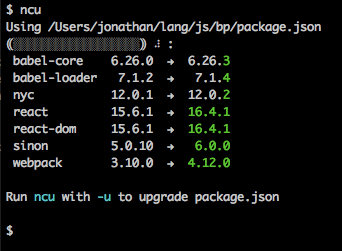
The output might be a little easier to parse compared to npm outdated. But
the real value happens if you run ncu -u: it will update your package.json
with the versions from the 2nd column.
Even if you don’t want all the changes from ncu -u, I find it’s easier to run
it and revert lines from the package.json manually. It certainly feels faster
than copy-pasting version numbers in package.json.
nsp and npm audit
If you’re not ready to upgrade, you might still want to check if you’re relying on packages with known security problems. nsp (Node Security Platform) provides a tool to audit the packages you depend on:
As mentioned in the nsp README:
The Node Security Platform has been acquired by npm
As of npm version 6, you can get a similar output to nsp with npm audit:
depcheck
depcheck does not trust what your
package.json says, it goes out into the project’s code and verifies. For
each dependency, it checks that it is required. Conversely, it checks that
each require is present in the package.json.

It’s not perfect, but it’s better than the alternative (hoping everything is ok?). There are ways to configure it to ignore false positives too. Check the README for more details.
Searching for packages
Whenever I encounter a package I’m not familiar with, I check the Github’s README to give me an idea of what it’s used for.
For example, what is cross-env?
There are more direct ways to find a project’s repo than Googling it. Open a terminal anywhere (whether in a project or not) and type:
$ npm home cross-envThat will open your browser to the homepage entry of a package’s package.json.
You can also search package’s name on npmjs.com (here: cross-env)
But I found that using yarnpkg.com (here: cross-env) is the best experience. You don’t have to use yarn to enjoy their search engine.
The number of downloads in the last 30 days gives you an idea about how popular different projects are:
